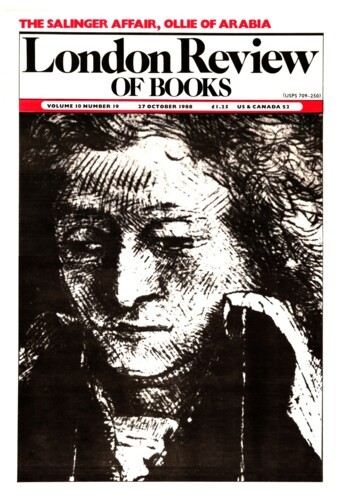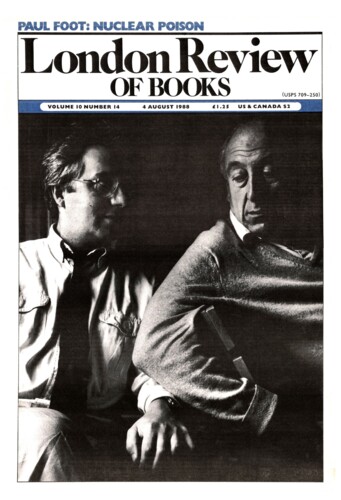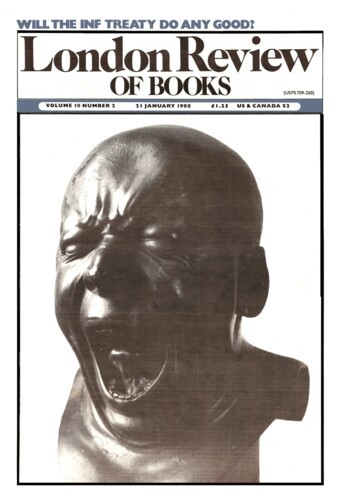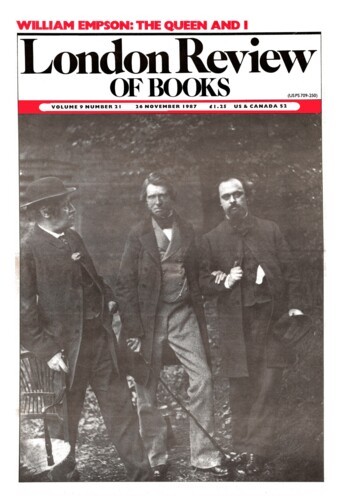Stone’s Socrates
Alan Ryan, 27 October 1988
The trial and execution of the aged philosopher Socrates in 399 BC for ‘impiety and corruption of the youth of Athens’ was the second most famous miscarriage of justice in Western history. Indeed, philosophers have often written it up as a secular prefiguring of the Crucifixion, with Socrates suffering martyrdom for his belief in the demands of his conscience, and the Athenian democracy which perpetrated the miscarriage of justice getting about as bad a press as the crowd which preferred Barabbas to Christ. Not everyone hits quite that note: among sentimental treatments of the case, a short French account of Trois Procès Scandaleux lowers the tone a bit by setting the case alongside the trial of Marie Antoinette. Nor is it quite true that everyone who has written about the trial has taken Socrates’s side, certainly not in the sense of returning a simple verdict of ‘miscarriage of justice’ against the Athenians.





